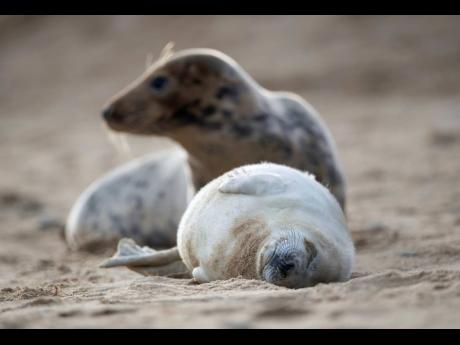50 countries vow to protect 30% of land and sea by 2030
PARIS (AP):
At least 50 countries committed to protecting 30 per cent of the planet, including land and sea, over the next decade to halt species extinction and address climate change issues, during a global summit on Monday aimed at protecting the world’s biodiversity.
About 30 leaders, government officials, and heads of international organisations participated in the One Planet Summit, which was being held by videoconference because of the coronavirus pandemic. Top US officials were notably absent as were the leaders of Russia, India, and Brazil.
French President Emmanuel Macron announced that the High Ambition Coalition for Nature and People, which was launched in 2019 by Costa Rica, France, and Britain to set a target of protecting at least 30 per cent of the planet by 2030, has now been joined by 50 countries.
A 2019 United Nations (UN) report on biodiversity showed that human activities are putting nature in more trouble now than at any other time in human history, with extinction looming for over one million species of plants and animals.
“We know even more clearly amid the crisis we are going through that all our vulnerabilities are interrelated,” Macron said. “Pressure on nature exerted by human activities is increasing inequalities and threatening our health and our security.”
“We can change the story if we decide to do it,” he added.
The one-day summit focused on four major topics: protecting terrestrial and marine ecosystems; promoting agroecology, a more sustainable way to grow food; increasing funding to protect biodiversity; and identifying links between deforestation and the health of humans and animals.
The summit also launched a programme called PREZODE, which Macron presented as an unprecedented international initiative to prevent the emergence of zoonotic diseases and pandemics, which is already mobilising over 400 researchers and experts across the world. The move comes as scientists suspect that the coronavirus that first infected people in China last year came from an animal source, probably bats.
“Pandemic recovery is our chance to change course,” UN Secretary General Antonio Guterres said. “With smart policies and the right investments, we can chart a path that brings health to all, revives economies, builds resilience, and rescues biodiversity.”

